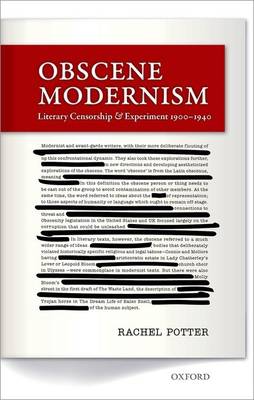
Je cadeautjes zeker op tijd in huis hebben voor de feestdagen? Kom langs in onze winkels en vind het perfecte geschenk!
- Afhalen na 1 uur in een winkel met voorraad
- Gratis thuislevering in België vanaf € 30
- Ruim aanbod met 7 miljoen producten
Je cadeautjes zeker op tijd in huis hebben voor de feestdagen? Kom langs in onze winkels en vind het perfecte geschenk!
- Afhalen na 1 uur in een winkel met voorraad
- Gratis thuislevering in België vanaf € 30
- Ruim aanbod met 7 miljoen producten
Zoeken
Obscene Modernism
Literary Censorship and Experiment 1900-1940
Rachel (Senior Lecturer in Literature at the University of East
Hardcover
€ 182,45
+ 364 punten
Omschrijving
This book analyses the censorship of literature for obscenity in the period 1900-1940. It considers why writers were so interested in writing about obscenity as well as attempts by lawyers, writers and publishers to define literature as a special area of free speech.
Specificaties
Betrokkenen
- Auteur(s):
- Uitgeverij:
Inhoud
- Aantal bladzijden:
- 242
Eigenschappen
- Productcode (EAN):
- 9780199680986
- Verschijningsdatum:
- 29/08/2013
- Uitvoering:
- Hardcover
- Afmetingen:
- 146 mm x 222 mm
- Gewicht:
- 426 g

Alleen bij Standaard Boekhandel
+ 364 punten op je klantenkaart van Standaard Boekhandel
Beoordelingen
We publiceren alleen reviews die voldoen aan de voorwaarden voor reviews. Bekijk onze voorwaarden voor reviews.









